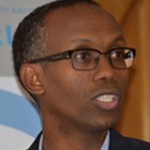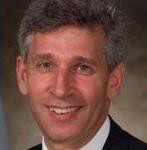Role of Government Google Hangout Event
Join for a discussion on the continued role of governments in solving global problems.
Thursday, October 23rd, 11am-12noon EDT
Moderator: Anthony Williams, GSN Executive Editor
While only national governments possess the powers of taxation, rulemaking, and coercion, the rapid evolution towards disaggregated power and authority in today’s world means that governments cannot meet the challenges of global governance alone.
Other actors — including businesses, NGOs and individuals — are increasingly involved in developing and implementing solutions to global problems. Still, the capacity and capabilities that these actors bring to the ‘global solution’ table are not being fully exploited and leveraged because governments have not figured out how to fully embrace them within their own static accountability frameworks.
As a result, opportunities are being missed or even lost, and ‘solutions’ are often suboptimal.
The key question addressed by this webinar is how national governments must adapt and make the transition to a more collaborative, inclusive and dynamic model of problem solving. With vivid and compelling examples, webinar guests Thomas Debass (Managing Director for Global Partnerships, Department of State) and Rob Fonberg (former Deputy Minister of the Canadian Department of Defense) will explain how national governments can contribute leadership, democratic input, and state resources into a shared project of building and enabling networked models for global governance and global problem solving.
Questions could include:
- Why do governments need to become more active in global solution networks (GSNs)? What’s the risk if they don’t?
- What do governments stand to gain from greater participation in GSNs?
- What factors might prevent governments from participating more actively in GSNs?
- What challenges do you face in identifying partners?
- How, from the perspective of your government or in your point of view, is a GSN built?
- What are the keys to maximizing impact and efficacy? How do you get the most of the potential synergies between the various stakeholder groups that come together in multi-stakeholder networks?
- What are the most important contributions governments can make to GSNs? (e.g. leadership, democratic input, funding)
- As GSNs take on greater role in governance, how might the role of government change in relation to some of the major challenges on the national agenda? (e.g. global health, security, prosperity and environmental sustainability)
- Do state-based agencies and institutions need to think and act differently in order to participate in, or even orchestrate, effective networks? If so, how should public sector leaders build the capacity to participate more effectively in GSNs?
- Are other governments adopting the partnerships models the US Government has set up?
Webinar Guests
 Thomas Debass, Deputy Special Representative for Global Partnerships, US Department of State
Thomas Debass, Deputy Special Representative for Global Partnerships, US Department of State
 Rob Fonberg, former Deputy Minister of the Canadian Department of Defence
Rob Fonberg, former Deputy Minister of the Canadian Department of Defence
Click here for the recording of the webinar, which took place on October 23rd.
Questions? Just ask: katherine@gsnetworks.org.

